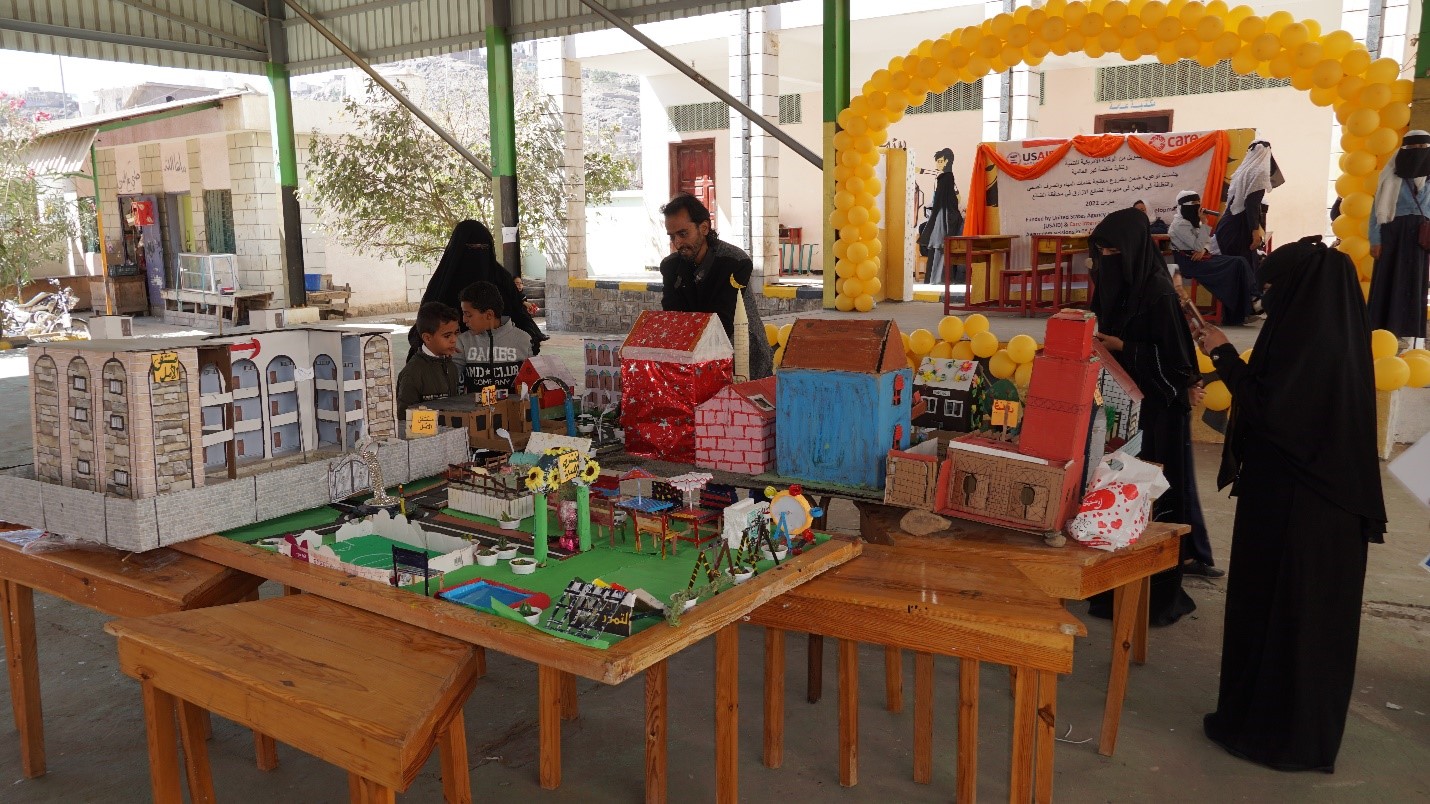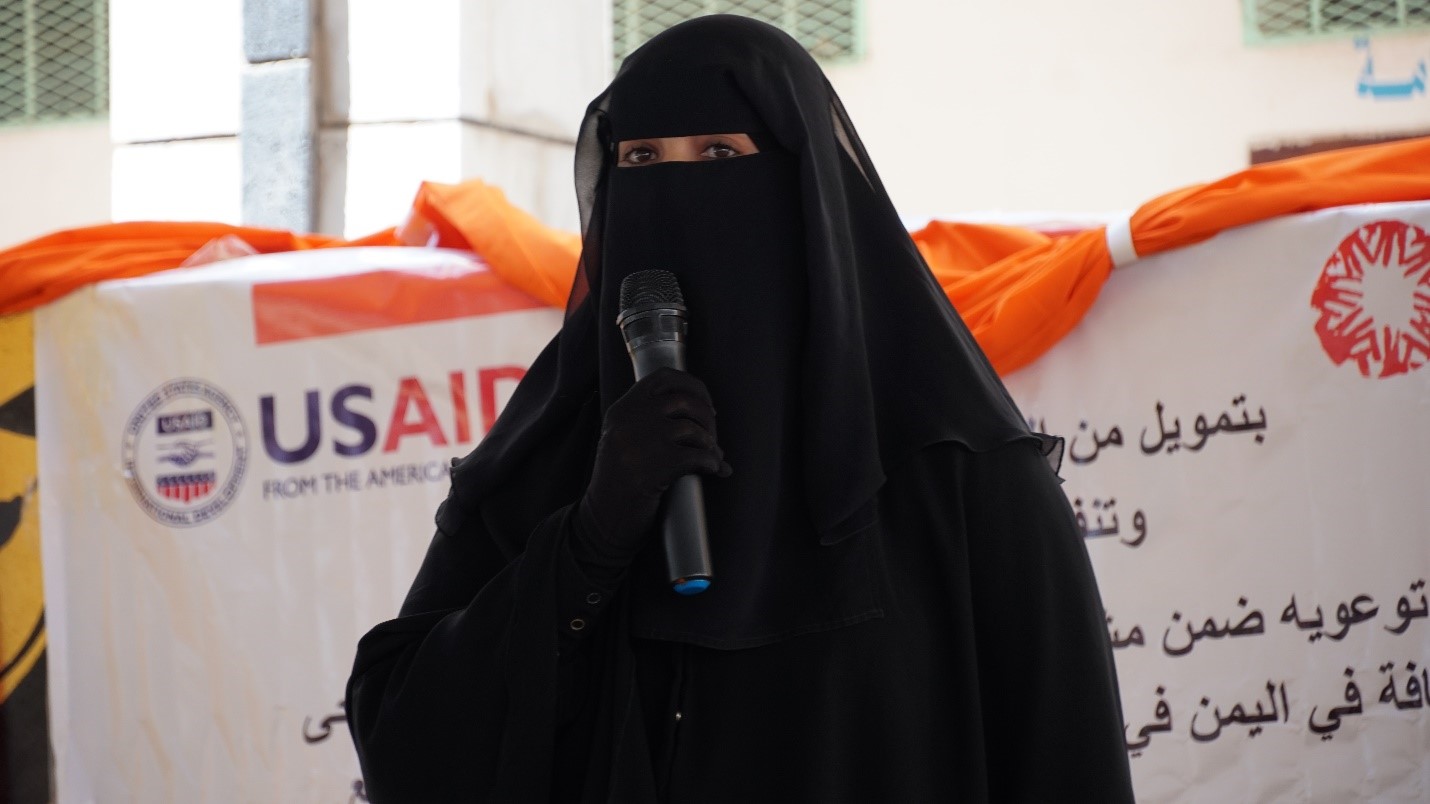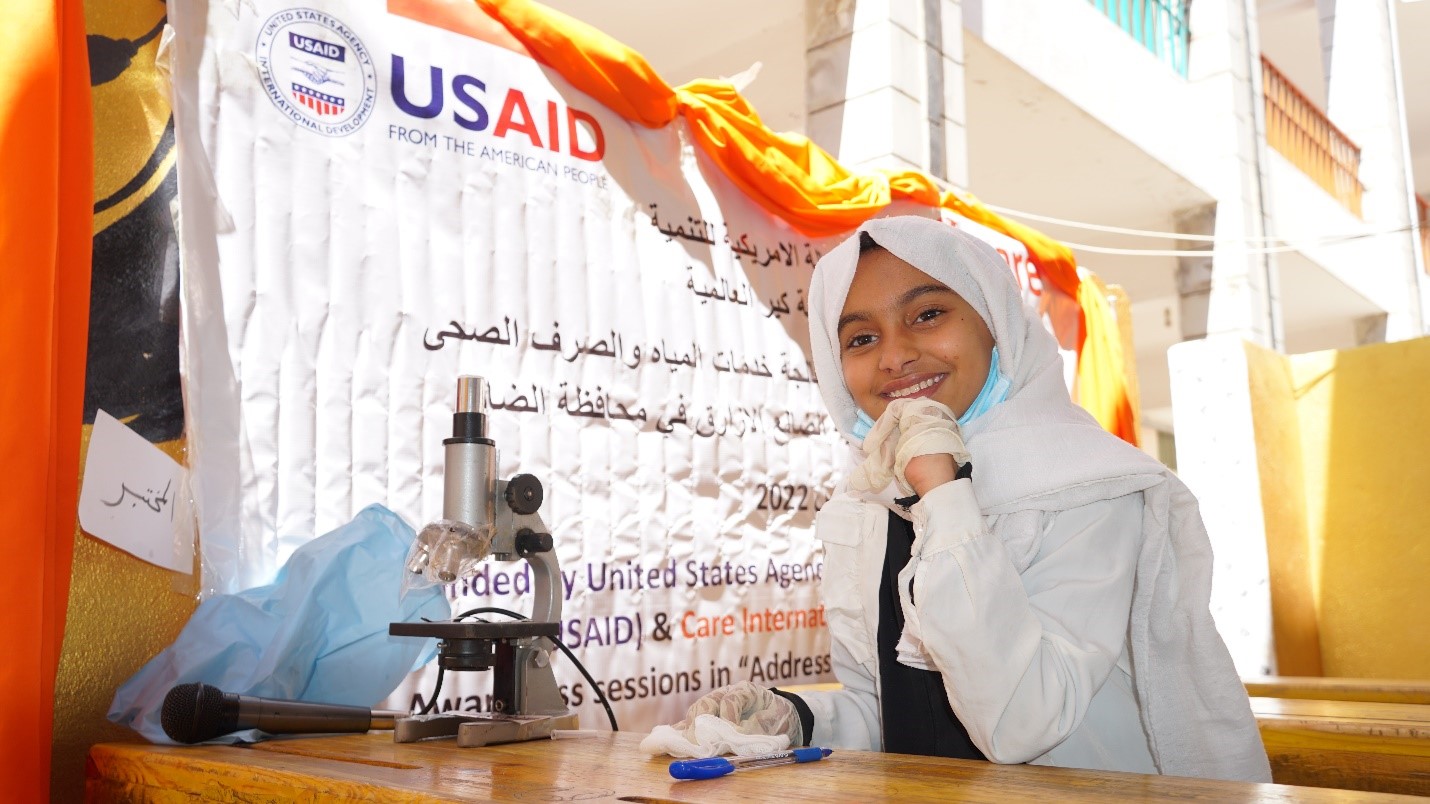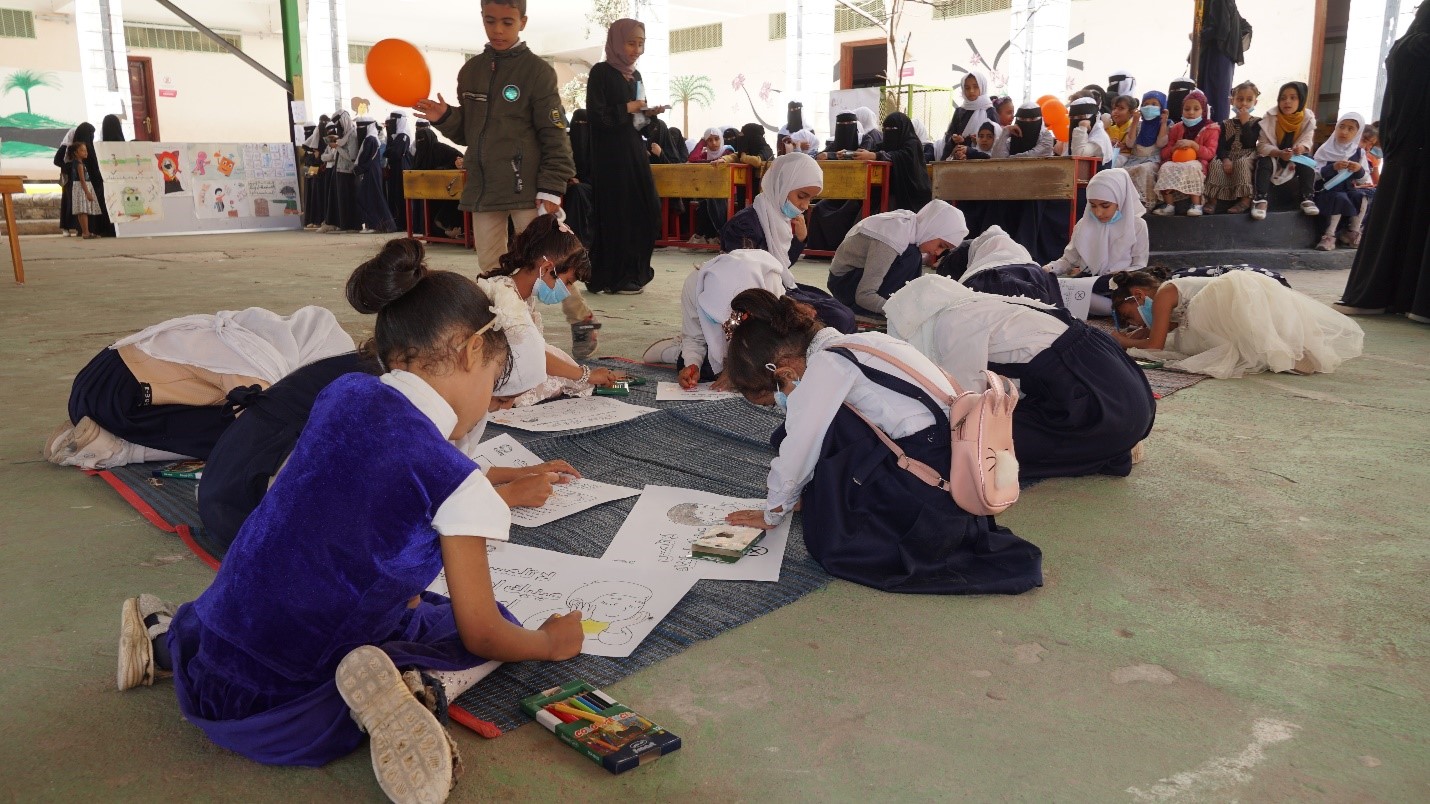Access to schools during conflict gives children a sense of normalcy and promotes resilience and recovery. At school, students learn, develop skills, and reach their full potential. Beyond education, schools also play a critical role in fostering social development and maintaining children’s mental and physical health. Children can adopt healthy behavior to sustain lifelong well-being through interaction with peers and adults outside the family cycle, such as teachers.
The protracted conflict in Yemen is affecting the future of entire generations of children. With the conflict entering its eighth year, access to schools is further exacerbated by economic decline, natural disasters, and displacement. More than 2,700 schools across Yemen have been destroyed, partially damaged, or utilized for non-educational purposes. And over 2.2 million school-aged Yemeni girls and boys are out of school. An estimated 5.9 million school students aren’t receiving a quality education and are forced to cope with overcrowded classrooms and overburdened teachers.
Mariam Ali teaches in a girls’ school in Al-Dhale’e Governorate, southern Yemen. “Many areas of our governorate suffer from poor sanitation infrastructure, a root factor for epidemic outbreaks,” she says. “Residents dump wastewater directly into swamps. The swamp in front of my house smells terrible, and I always worry about my children getting sick.”





